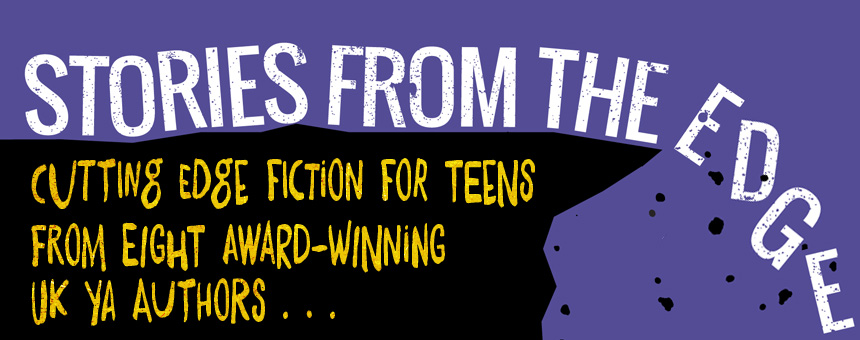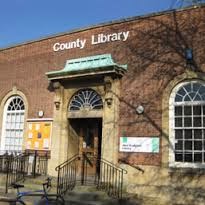.jpg) |
| Mel Webster |
Hi Mel, tell us about your path to becoming a school librarian.
Well, I studied Librarianship at Birmingham City
University, qualifying in 1986. I have worked in public libraries, for a school
library service, a college in the Middle East, a university library and three
Nottinghamshire schools. My current post is that of Leader of the Learning
Resource Centre at The Becket School, Nottingham. I really value being part of
a school community and it makes me happy to see how enthusiastic young people
can be about reading given the right opportunities.
What's your favourite aspect of being a
librarian?
The aspect of the role
that I enjoy the most is the same now as it was when I first qualified as a
librarian in 1986. I relish the opportunity that it gives me encourage others
to discover both the joy of reading and the importance of effectively accessing
information. Both can make a huge and real difference to our lives. The appeal
of working in a school is that I am able to built a productive working
relationship with individuals and hopefully make a positive impact on their
ability to learn. It is wonderful to witness
young people developing their ability and confidence. It is a privilege to have
this role and support pupils in reaching their full potential. I hope that in
some small way I am able to change the misconceptions that young people may
have about what libraries can do for them.
How can schools
encourage a reading culture?
This
encouragement starts with the nursery and primary schools and relies on them
having the funding to buy the resources they need to foster a love of reading.
I know so many primary schools with wonderful, committed classroom teachers and
Literacy Coordinators who struggle to buy the books that they recognise as the
best available for their pupils. If they are able to fund a good school
library, make time for daily reading and invite writers, poets, storytellers
and book illustrators into school then they will be able to inspire even the
most reluctant of readers. The School Library/Education Library Services around
the UK (that are still in existence) play a key role in supporting both primary
and secondary schools in promoting a reading culture. The employment of
qualified, and ideally chartered, librarians in secondary schools who can
effectively manage a collection of reviewed and carefully selected resources is
crucial. These professionals lead promotional activities such as The Carnegie
Shadowing Scheme and The Brilliant Book Award as well as organise book events
on a regular basis which can facilitate a healthy reading culture. The annual
Book Week at my school has proved to have a lasting impact in many ways e.g.
reluctant readers discovering an author that they like or a genre that had
never appealed to them before.
If you could
recommend one book for every pupil to read what would it be?
I
would recommend a book that is already extremely popular with the young people
in my school – ‘Wonder’ by R. J. Palacio. This is a book that stayed with me
long after I had finished reading it. The story of a 10 year old boy who was
born with a facial disfigurement, it is told using a first person narrative by
several different characters including Auggie himself. Auggie has to deal with
how others react to how he looks and this ranges from fear and some unkindness
to acceptance and friendship. I was engrossed in this book from the first page.
It really made me think about how often people are judged by how they look but
also the importance of kindness in the world. My favourite quote from the book
is as follows:
“If
every person in this room made it a rule that wherever you are, whenever you
can, you will try to act a little kinder than is necessary - the world really
would be a better place. And if you do this, if you act just a little kinder
than is necessary, someone else, somewhere, someday, may recognize in you, in
every single one of you, the face of God.”
― R.J. Palacio, Wonder
― R.J. Palacio, Wonder
What
was your favourite book when you were a teen and why?
I
had a favourite series of books when I was a teenager that I read and reread.
It was the ‘Flambards’ series by K. M. Peyton. It comprised of four books ‘Flambards’,
‘The Edge of the Cloud’, ‘Flambards in Summer’ and ‘Flambards Divided’. They
were adapted for television about ten years after the first book was published.
The books are set before, during and after the Second World War. Christina is
an orphan and has been sent to live with her tyrannical uncle and her two male
cousins. Their estate, Flambards, is impoverished and, since Christina will
inherit a fortune when she is twenty-one, the uncle intends to marry her off to
his oldest son in order to restore Flambards to its former glory. I enjoyed
reading about this feisty, teenage heroine and her friendship with the younger
of her two cousins. There is a love triangle involved in the second book which
has an impact throughout the series.
What has been your favourite book published in the last 3 years?
When the pupils ask me this question I find it really hard to
think of just one because I am lucky enough to have access to so many great
books. Last year I read ‘When I was Joe’ by Keren David. I had not heard of it
but spotted it on the shelves at ‘The Education Library Service’. Its front
cover was so striking that I just had to pick it up.
The blurb promised a compelling thriller and this certainly proved
to be the case. The main character, fourteen year old Ty, witnesses a fatal
stabbing and as a result he and his mother are taken into police protection. Ty
has to leave behind all that he knows including his friends. He has to change
his identity, becoming Joe which results in a cool new image. The author has
said that she what she did
was to have “Ty living a lie just so that he can tell the truth” which is
ironic and I found myself stopping and thinking about this several times during
the book. It did not take me long to read due to the plot’s fast pace. I have
recommended this book to older readers (both boys and girls) who have lost
interest in reading and had fantastic feedback from them. This was Keren
David’s debut novel and she has gone on to write two thrilling sequels.
Thanks, Mel for this this great Q&A. Have a wonderful Christmas!
















.JPG)




